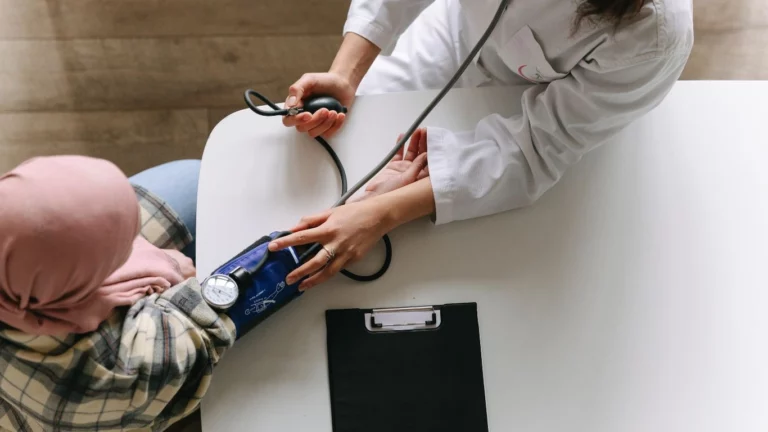Shocking Truth About GERD and Dizziness After Eating Revealed
Have you ever experienced that unsettling feeling of dizziness right after eating, combined with the nagging discomfort of heartburn or acid reflux? If so, you might be surprised to learn there’s a connection between GERD and dizziness after eating. As someone who has worked closely with patients in a gastroenterology clinic, I’ve seen firsthand how this combo can really throw people off balance—literally and figuratively. Let’s unpack why this happens and what it means for your health.
Understanding GERD and Its Common Symptoms

Gastroesophageal reflux disease, or GERD, is a condition where stomach acid flows back up into the esophagus, causing that infamous burning sensation in your chest or throat. It’s more than just occasional heartburn; GERD is chronic and can seriously impact your daily life. From my experience, many patients initially brush off these symptoms, thinking it’s just an upset stomach or something they ate. But over time, it can lead to more uncomfortable and sometimes alarming issues.
Typical GERD symptoms include:
- Persistent heartburn that gets worse after meals or when lying down.
- Regurgitation of acid or food.
- Difficulty swallowing or a feeling like food is stuck.
- Chronic cough or sore throat.
However, dizziness after eating isn’t often listed among the classic symptoms, which can make it confusing if you’re experiencing both. This is where things get interesting.
The Link Between GERD and Dizziness After Eating

So, why does dizziness sometimes show up after a meal in people with GERD? While it’s not a direct symptom of acid reflux itself, several factors related to GERD and digestion can trigger that woozy feeling:
1. Vagus Nerve Stimulation
The vagus nerve plays a crucial role in regulating your digestive tract and heart rate. When acid reflux irritates the esophagus, it can stimulate this nerve abnormally, which might cause a drop in blood pressure or slow your heart rate. This reaction can lead to lightheadedness or dizziness, especially after eating a big meal.
2. Blood Flow Shifts During Digestion
After eating, your body directs more blood to the stomach and intestines to help with digestion. For some people, especially those with GERD, this shift in blood flow can temporarily lower blood flow to the brain, causing dizziness. I’ve seen this in patients who eat large, heavy meals or foods that worsen their reflux symptoms.
3. Dehydration or Low Blood Sugar
Sometimes, people with GERD avoid drinking enough fluids or skip meals to prevent reflux, which ironically can lead to dehydration or low blood sugar. Both are known culprits for dizziness and faintness. From my time assisting patients, I always stress the importance of balanced meals and staying hydrated even when symptoms flare up.
Recognizing When Dizziness Is a Sign to Seek Medical Help

While occasional dizziness after eating might not be alarming, it’s important to pay attention if it happens frequently or is severe. Some red flags include:
- Dizziness accompanied by chest pain, severe shortness of breath, or fainting.
- Sudden, unexplained weight loss.
- Difficulty swallowing or persistent vomiting.
- Dizziness that affects daily activities or causes falls.
In the gastroenterology clinic where I worked, patients who reported dizziness alongside reflux symptoms were often referred for a thorough evaluation, including heart and neurological checks, to rule out other causes.
Managing GERD and Dizziness After Eating: Practical Tips That Work

From my experience working with GERD patients, one of the biggest challenges is balancing symptom relief while maintaining a healthy lifestyle. When dizziness joins the mix, it can feel overwhelming, but trust me, there are practical ways to ease both.
Eat Smaller, More Frequent Meals
One of the first things I recommend is breaking your meals into smaller portions throughout the day. Large meals can trigger reflux by putting extra pressure on the stomach and pushing acid upward. Plus, smaller meals reduce the drastic blood flow changes that sometimes cause dizziness. Instead of three heavy meals, try five or six lighter ones. It’s a game changer.
Stay Hydrated But Avoid Carbonation
Drinking enough water is crucial, especially if you’re prone to dizziness. Dehydration only makes things worse. However, carbonated drinks can irritate your stomach and worsen GERD symptoms. Stick to plain water or herbal teas like ginger or chamomile, which I’ve found often soothe the digestive system.
Avoid Trigger Foods That Worsen Both GERD and Dizziness
Everyone’s triggers can be a bit different, but here are some common offenders I often see in clinic patients:
- Spicy foods
- Fried or fatty meals
- Caffeine and alcohol
- Chocolate and mint
- Acidic foods like citrus and tomatoes
Eliminating or reducing these can prevent acid reflux flare-ups, which in turn lowers the chance of that dizzy spell afterward.
Wear Loose Clothing and Avoid Lying Down Right After Eating
Tight belts or waistbands can increase stomach pressure, pushing acid back into the esophagus. I always remind patients to opt for comfortable clothes, especially around meal times. Plus, staying upright for at least an hour after eating helps gravity do its job—keeping acid where it belongs.
When to Consider Medical Treatment for GERD and Associated Symptoms

Sometimes lifestyle changes aren’t enough, and that’s totally okay. GERD is a medical condition, and managing it often requires a tailored treatment plan. From working alongside gastroenterologists, I’ve learned how crucial early intervention is to prevent complications and improve quality of life.
Over-the-Counter and Prescription Medications
Antacids are the go-to for quick relief—they neutralize stomach acid on contact. But for persistent symptoms and dizziness related to reflux, doctors might recommend:
- H2 blockers, which reduce acid production.
- Proton pump inhibitors (PPIs), a stronger class of acid reducers often prescribed for longer-term management.
- Medications to improve stomach motility, which can help with digestion and reduce reflux episodes.
In my role as a medical assistant, I’ve seen how patient education on medication timing and adherence can make a big difference. Taking meds as directed, often before meals, maximizes their effectiveness and helps avoid breakthrough symptoms.
Monitoring and Follow-Up
Regular check-ins are vital, especially if dizziness persists or worsens. It’s important to rule out other causes like anemia, blood sugar issues, or cardiovascular problems that might mimic or worsen symptoms. I always encourage patients to share all their symptoms openly so their healthcare team can provide the best care possible.
Simple Lifestyle Habits to Support Digestive Health and Reduce Dizziness

Beyond diet and medication, there are some everyday habits that I’ve seen really help people manage GERD and its effects on overall well-being, including dizziness:
Manage Stress Effectively
Stress can worsen GERD symptoms by increasing stomach acid and affecting digestion. From chatting with patients, I’ve noticed that those who practice relaxation techniques—like deep breathing, meditation, or even light yoga—report fewer reflux episodes and feel more balanced overall.
Incorporate Gentle Physical Activity
Light exercise after meals, like a short walk, helps digestion and encourages steady blood flow. Just avoid intense workouts right after eating, as that might trigger reflux or dizziness.
Sleep Smart
Elevating the head of your bed or using a wedge pillow can keep stomach acid down overnight, reducing nighttime reflux. Better sleep means less fatigue, which can help reduce dizziness during the day.
As a final note, always listen to your body. If something feels off, don’t hesitate to reach out to your healthcare provider. Managing GERD and dizziness isn’t about perfection but finding what works for you—and I’ve seen that with the right approach, relief is absolutely possible.
Long-Term Strategies to Prevent GERD and Dizziness After Eating

After working in a gastroenterology clinic for a while, I learned that tackling GERD and dizziness after eating isn’t just about quick fixes. It’s about building sustainable habits that keep your digestive system calm and your body balanced over time. If you’re dealing with these symptoms, here are some long-term strategies that can make a real difference.
Mindful Eating: Slow Down and Listen to Your Body
One simple change that often gets overlooked is how you eat. Eating too fast or while distracted can increase the chance of acid reflux and dizziness. When I talk to patients, I encourage them to slow down, chew thoroughly, and pay attention to their body’s signals. Mindful eating not only aids digestion but also helps prevent overeating, which is a common trigger for reflux.
Maintain a Healthy Weight
Carrying excess weight can put extra pressure on your stomach and lower esophageal sphincter, making acid reflux more likely. I’ve seen patients improve drastically after losing even a small amount of weight through a combination of diet and exercise. This also helps with overall circulation, which can reduce dizziness episodes after meals.
Quit Smoking and Limit Alcohol Intake
Both smoking and alcohol can weaken the valve that keeps stomach acid from flowing back into the esophagus. From my firsthand observations in the clinic, patients who quit smoking and cut back on alcohol often report fewer reflux episodes and better overall health.
When to Seek Further Evaluation

While most GERD and dizziness cases can be managed with lifestyle changes and medications, there are times when more in-depth evaluation is necessary. If you notice any of these signs, it’s crucial to get checked by a healthcare professional:
- Persistent or worsening dizziness that doesn’t improve with typical measures.
- New or severe chest pain, especially if it’s different from usual reflux discomfort.
- Difficulty swallowing or painful swallowing.
- Unintended weight loss or severe fatigue.
- Vomiting blood or black stools, which can indicate bleeding in the digestive tract.
In the clinic, when patients present with such symptoms, a thorough workup might include endoscopy, blood tests, or imaging to rule out other conditions like ulcers, infections, or even cardiac issues. It’s always better to be cautious and get an accurate diagnosis rather than ignoring warning signs.
Personal Reflections From the Clinic
Throughout my years as a medical assistant, one thing became clear: every patient’s journey with GERD is unique. Some manage well with simple diet tweaks, while others need ongoing medical support. The dizziness after eating often added an extra layer of frustration, but it also provided an important clue about the body’s complex response to reflux.
I remember a patient who struggled with severe reflux and frequent dizziness that made her afraid to eat. Together, we worked on adjusting her meal sizes, hydration habits, and medication timing. Over time, she regained confidence and even started walking regularly—small changes that transformed her quality of life. Moments like these remind me that even when symptoms feel overwhelming, solutions are within reach.
References and Further Reading
- American Gastroenterological Association
- Understanding GERD – Gastro.org
- Managing Acid Reflux and Associated Symptoms
Disclaimer
The information provided here is based on my personal experience as a medical assistant and general medical knowledge. It is not intended to replace professional medical advice, diagnosis, or treatment. If you have concerns about GERD, dizziness after eating, or any other health issues, please consult a qualified healthcare provider for personalized care.

Camellia Wulansari is a dedicated Medical Assistant at a local clinic and a passionate health writer at Healthusias.com. With years of hands-on experience in patient care and a deep interest in preventive medicine, she bridges the gap between clinical knowledge and accessible health information. Camellia specializes in writing about digestive health, chronic conditions like GERD and hypertension, respiratory issues, and autoimmune diseases, aiming to empower readers with practical, easy-to-understand insights. When she’s not assisting patients or writing, you’ll find her enjoying quiet mornings with coffee and a medical journal in hand—or jamming to her favorite metal band, Lamb of God.







